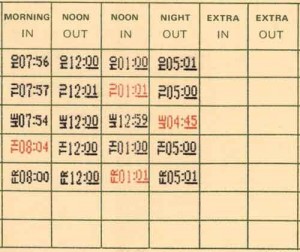
Do you take your breakfast to work or buy it on the way in and eat it at your desk? Is the first thing you do when you get to work to check your Facebook/Linkedin or spend time checking the local news website? In my experience both of these activities are common practise in the corporate office in Australia. Naturally there will also be a modicum of socialising with work colleagues as you begin your day.
Unless there is a pressing issue to deal with or an early meeting you may not start what your employer would call ‘productive work’ until deep in the morning. However it will have been noted that you were in the office at a respectable hour and its likely your boss and colleagues will see you as a diligent part of the company, at least in part because of your attendance. And at the end of the day as the office starts to empty perhaps you make a few purchases online or research your next holiday, delaying your departure until your peers or your boss have left.
So is our motivation to get into work early or leave late driven by a desire to be more productive at our jobs, or to “punch the card” and be seen to be doing something? Would our time be better spent reading the news at home and eating breakfast away from the pressure of the office only to arrive a little later and hit the ground running, enthused to achieve?
Our digitally connected age was meant to deliver us freedom to perform our duties and further our achievements wherever we wanted. It was meant to deliver greater productivity to business. It’s a long debate for another time as to whether or not this has actually happened, but this ability for greater freedom needs to be matched by a more meaningful focus on genuine productivity from businesses.
I’ve always been a big believer that any business is paying its employees for time spent working, not the time spent at work. I’ve seen many examples of people who put in long hours but their output didn’t match up. I do understand that some people need the discipline of the office environment to get their head in the game. More time out of the office does not help this personality type be more productive. Also, many bosses want the control of being able to see their employees (whether they’re working or not) in the office and active, if not productive. I do believe the office environment is a critical social function of our society. Going to work gives us an important sense of purpose, it fulfils and challenges our human need for social interaction, and in most cases it provides a stimulating environment where we can continue to develop as people.
More rigour around business metrics and measurements like KPI’s should allow employers to trust that they can benchmark productivity and have a degree of control. This understanding should flow to employees who then feel comfortable with how their productivity will be measured, and comfortable that if they decide to eat breakfast at home no one is thinking any less of them.
© 2013 521 Group. All Rights Reserved.
